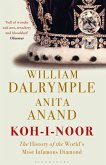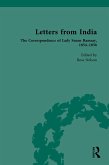An acclaimed military historian, Knight reveals the brutal reality of colonial conflict from both sides. Drawing on first-hand accounts he shows us the reality of life for the British soldier in this era - the drudgery of peacetime service for the ordinary soldier, the excitement and privations of posting overseas, the floggings and desertions, the regimental pride and comradeship.
Knight vividly recreates the action on the ground, from bloody skirmishes in Southern Africa and siege warfare in New Zealand to disasters like the 1842 retreat from Kabul and Chillianwalla in the Punjab. British soldiers trained in tactics that had beaten Napoleon were forced to adapt when faced with warriors with very different skills fighting on their home ground, and yet the army won more than four-fifths of the battles they fought in this era. Knight describes how, by 1860 with their redcoats increasingly replaced by khaki, the British army was a more professional, efficient and increasingly ruthless fighting force.
'Impressively researched and highly readable analysis' - Tony Pollard, Professor of Conflict History and Archaeology, University of Glasgow
Dieser Download kann aus rechtlichen Gründen nur mit Rechnungsadresse in A, B, BG, CY, CZ, D, DK, EW, E, FIN, F, GR, HR, H, IRL, I, LT, L, LR, M, NL, PL, P, R, S, SLO, SK ausgeliefert werden.
Hinweis: Dieser Artikel kann nur an eine deutsche Lieferadresse ausgeliefert werden.









